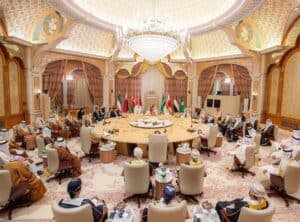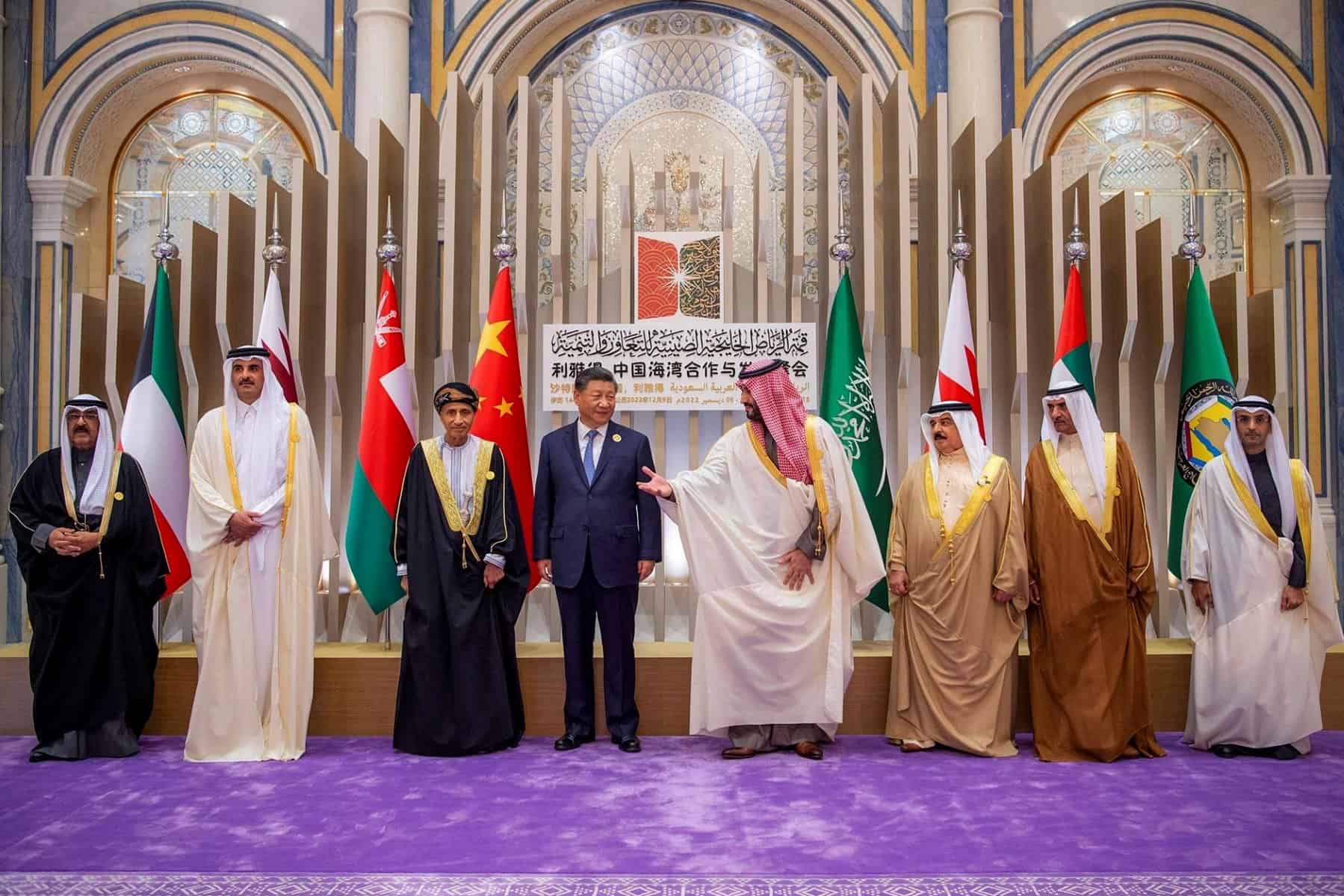Riyadh. Saudi Arabia—Arab leaders have agreed to strengthen the existing strategic partnership between the Gulf Cooperation Council and China, and emphasized pushing it towards new horizons in various fields: political, economic, cultural, health, finance, investment, industry and space.
The leaders adopted a joint action plan for the 2023-2027 period to achieve these objectives, according to the joint statement reported by SPA.
“The leaders emphasized the importance of mutual support in order to achieve the common interests of both sides, as China supports the efforts of the GCC states to preserve its sovereignty and territorial integrity, maintain its security and stability, and achieve integrated development. The GCC states also support China’s efforts to develop its economy, maintain its sovereignty and territorial integrity, and adhere to the one-China principle,” the statement reads.
The leaders also denounced the malicious media campaigns directed against Qatar, while hailing it for successfully hosting the World Cup football.
“The leaders condemned terrorism, whatever its source, and their rejection of all its forms and manifestations, and work to dry up its sources of financing, and expressed their determination to strengthen regional and international efforts to combat terrorism and extremism,” the statement said.
The leaders called for the “peaceful nature of the Iranian nuclear program, in order to preserve regional and international security and stability” and stressed the “importance of a comprehensive dialogue with the participation of the countries of the region to address the Iranian nuclear program and destabilizing regional activities”
The leaders also called on the Republic of Iraq to complete the demarcation of the maritime borders with the State of Kuwait and called for the need to reach a just solution to the Palestinian issue on the basis of the two-state solution, in accordance with relevant United Nations resolutions and the Arab Peace Initiative, and the establishment of an independent Palestinian state on the 1967 borders, with East Jerusalem as its capital. They also called for Israel to stop settlements and all unilateral measures and respecting the historical status quo in the city of Jerusalem and its sanctities.
‘Natural partners’
Chinese President Xi Jinping said the GCC and China were natural partners, which have similar cultural values, and “exchange cooperation in the spirit of one team in the face of changes in international and regional situations and their challenges resulting from the financial crisis, Corona and major natural disasters”, according to SPA.
“China will continue its unwavering support for the Gulf Cooperation Council countries in maintaining their security and support the countries of the region to resolve differences through dialogue and consultation and building a collective security system in the Gulf, and China welcomes the countries of the Gulf Cooperation Council to participate in the global security initiative in order to maintain peace and stability,” Jinping said.
‘Maximizing benefits’
Egyptian President Abdel Fattah El-Sisi said the Arab-Chinese summit will give a “tangible impetus” to Arab-Chinese cooperation in all its forms.
He said “when we meet again in the near future, we will have accomplished a lot”.
“The prospects for cooperation between our countries are still wide, and we can achieve more and more in several economic, developmental and technological fields,” he said.

Security ties
Chinese President Xi Jinping on Friday touted close security and energy ties with Gulf nations during summit meetings in Saudi Arabia.
On the third and final day of his visit, Xi attended summits of the six-member Gulf Cooperation Council and a broader China-Arab leaders’ meeting.
The discussions came one day after bilateral sit-downs with Saudi royals yielded a joint statement stressing “the importance of stability” in oil markets — a point of friction with the United States. Washington has urged the Saudis to raise production.
“China will continue to firmly support the GCC countries in maintaining their own security… and build a collective security framework for the Gulf,” Xi said at the start of the China-GCC summit.
“China will continue to import large quantities of crude oil from GCC countries on an ongoing basis,” he said, also vowing to expand other areas of energy cooperation including liquefied natural gas imports.
Oil from Saudi Arabia alone accounted for 17 percent of China’s imports last year, and last month Qatar announced a 27-year natural gas deal with China.
Earlier on Friday, a joint Chinese-Saudi statement spoke of “focusing on emissions rather than sources” in tackling climate change, the approach championed by the resource-rich Gulf monarchies.
Forty-six bilateral agreements and memorandums of understanding were announced on everything from housing to Chinese language teaching. Both sides are seeking economic and strategic benefits by deepening cooperation.
‘Prestige’ trade deals
Saudi Crown Prince Mohammed bin Salman addressed both summits on Friday, promising “continuing Arab-Chinese cooperation to serve our common goals and aspirations of our peoples”.
The Gulf countries, strategic partners of Washington, are bolstering ties with China as part of eastward turn that involves diversifying their fossil fuel-reliant economies.

